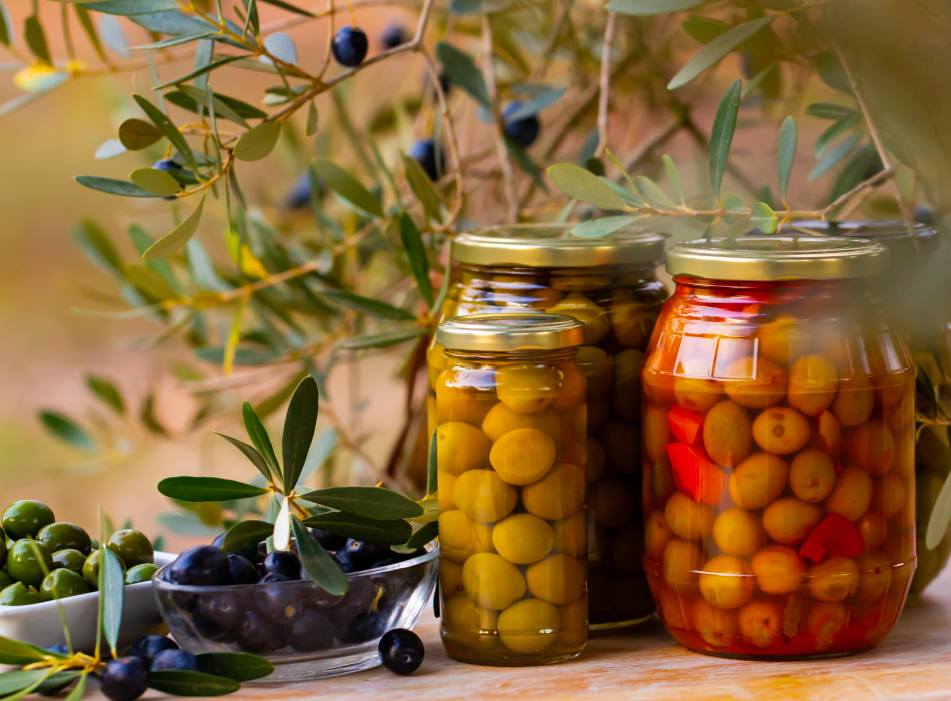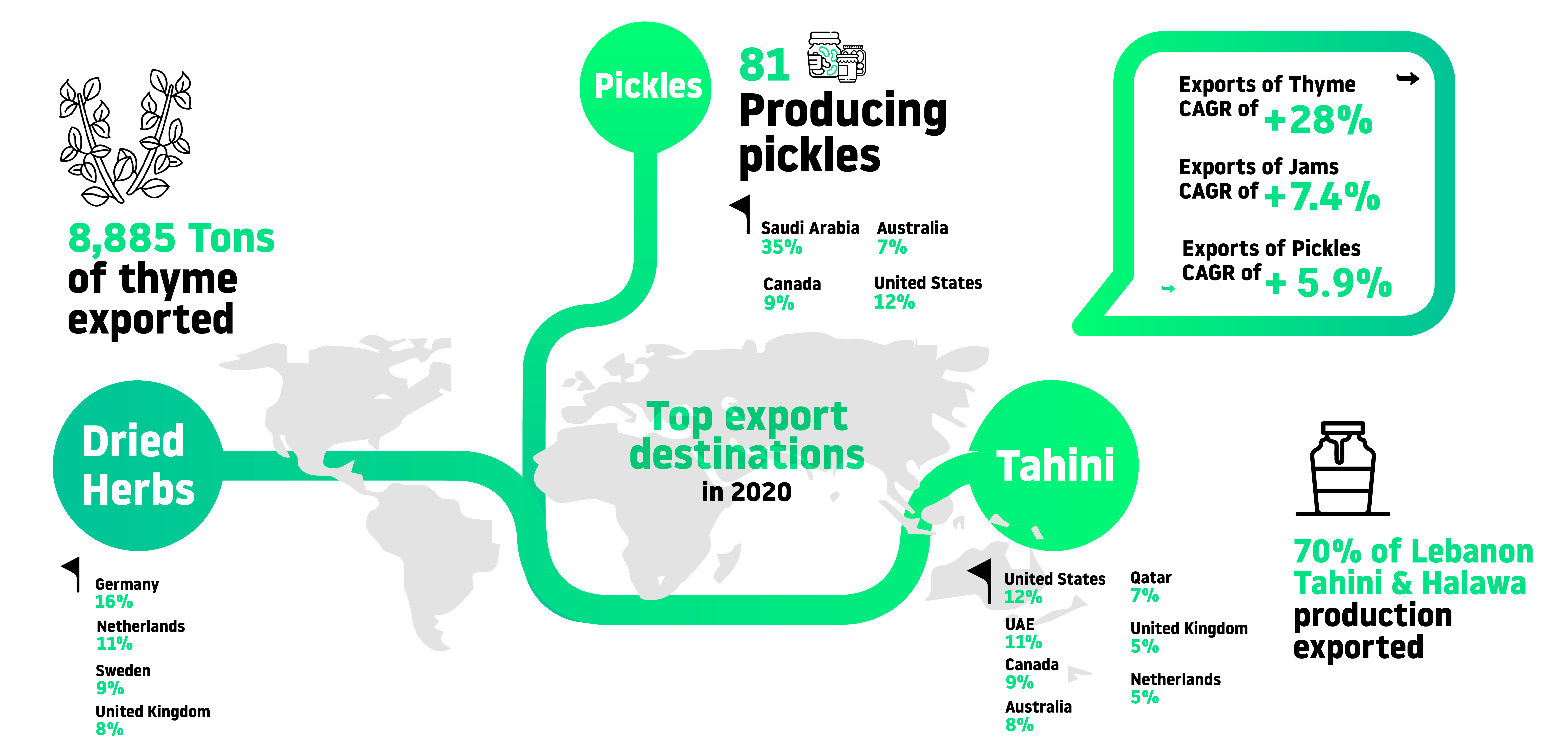Traditional Food Preparations
Access Lebanon’s culinary heritage and centuries-old recipes passed down for generations
Overview
Traditional food preparations are a mix of culinary heritage products that are well known and considered a key component of Lebanese/ Levantine cuisine. These products while highly appreciated by the local population are also gathering global popularity due to their unique health properties and nutritional value.
Traditional food preparations include pickled food (most popular is vegetable pickles like cucumber and aubergine), jams and marmalades using delicious fresh fruits, sweeteners and syrups, thyme and other dried herbs, and finally tahini by-products.
These specialty products are characterized by long shelf-life as the traditional methods used to preserve food were originally done to ensure food abundance all year long, especially in the winter season.
Pickling has been growing in demand in recent years. The market for pickles in Lebanon was estimated at over $34m in 2016. This is mainly due to the growing global awareness about the health benefits of fermented and pickled food.
Natural sweeteners and molasses made from fresh fruits like carob and grape have also been witnessing a growth trend, especially from the Lebanese diaspora looking for an authentic taste of their country yet healthy and clean products.
Jams, jellies and marmalades from Lebanon are distinguished by the quality of fresh fruits and the relatively higher fruit concentration making people ready to pay a premium for such quality.
In recent years, there was renewed interest in wild edible plants and herbs as they are perceived as healthy and have delicious aromatic flavors that spice up dishes. Demand for zaatar or thyme mix has been growing locally and abroad from the Lebanese looking for a seasoning that reminds them of home.
While the market for Tahini and its byproducts (e.g., hommos and baba ghanouj) is becoming highly competitive globally, Lebanese producers still have an edge to continue to expand their market share thanks to a combination of innovation and consistency in quality



Industry Players
Lebanon’s processors of Mouneh products or traditional food preparations are dominated by artisanal and micro family businesses that produce authentic small batches home-made like products inspired by traditional family recipes.
Based on the Ministry of Industry data from 2020, there are around 117 registered companies in Lebanon producing fruits and vegetable preparations and 132 companies producing a variety of other food products (including tahini by-products).
In the jams and jellies market, few companies dominate 80% of total production while in the tahini and its byproducts market, companies are mostly export-oriented sometimes exporting more than 70% or 90% of their local production.
Check our exporter directory to find our verified list of agri-food producers in Lebanon.
Export Performance
Export of traditional food preparations products has been on a rising trend, increasing by a compounded annual growth rate of 4.75 % from 2018 to 2020, with top export destinations in 2020 including Saudi Arabia (35%), United States (12%), Canada (9%) and Australia (%).
Specifically, export of jams has been increasing by a compounded annual growth rate of 7.39 % from 2012 to 2020, with top export destinations in 2020 including Jordan (14%), Australia (12%) and Qatar (11%)
While export of pickles has been increasing by a compounded annual growth rate of 5.9% from 2016 to 2020, with top export destinations in 2020 including the United Arab Emirates (21%), Kuwait (17%), and Australia (11%).
In 2020, Lebanon exported 5,892 thousand US$ of dried thyme worldwide, or the equivalent of 8,885 tons. Exports of dried thyme have been growing at a compounded annual growth rate of 28% from 2012 to 2020, with top export destinations for dried thyme in 2020 including Germany (16%), The Netherlands (11%), Sweden (9%) and the United Kingdom (8%).
Export of tahini from Lebanon has been on a rising trend too increasing by a compounded annual growth rate of 2.2% from 2012 to 2019. Top export destinations for tahini for the year 2020 include the United States (12%), United Arab Emirates (11%), Australia (8%), Qatar (7%) United Kingdom (5%), The Netherlands (5%).


Our Advantage
- Renowned culinary heritage and traditional recipes that are passed through generations
- Positive global perception of the Lebanese cuisine for being healthy, vegan, and vegetarian friendly and authentic.
- Premium products at cost-competitive rates

